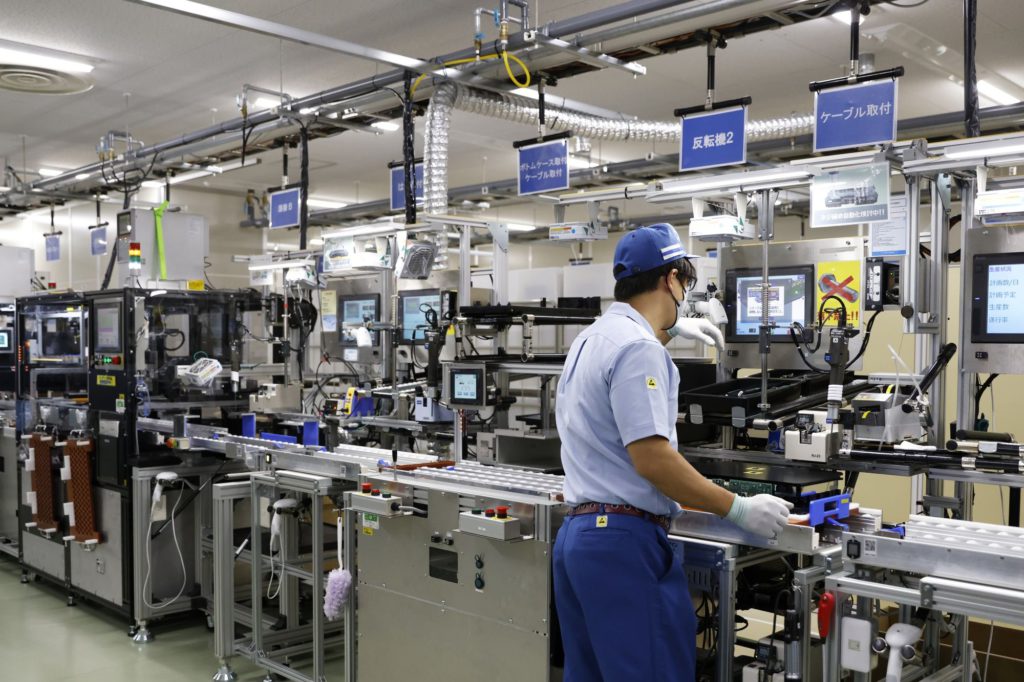(Bloomberg) — Murata Manufacturing Co. plans to make three more factories in Japan 100% reliant on renewable power by March next year, in a bid to outshine rival iPhone suppliers racing to lower emissions.
The move is in part driven by Apple Inc.’s aggressive initiative to build a carbon-neutral supply chain, but other companies are increasingly making similar requests, Murata President Norio Nakajima told Bloomberg News in an interview.
“Stakeholders and society’s demands have changed, and we must move fast because we can’t do this overnight,” he said. “If we act first, these changes will bring us huge business opportunities.”
A third of Murata’s 230 billion yen ($1.9 billion) capital expenditure budget over the next three years will be dedicated to environment-related projects, he said.
The Kyoto-based firm is the premier supplier of ceramic capacitors — tiny, inexpensive products essential in most integrated circuits — and one of the leaders in corporate Japan’s move toward more environmentally-conscious operations. Two domestic Murata factories and one Philippines site already run fully on renewable power, accounting for 15% of the company’s total energy consumption. The component maker plans to raise that share to 25% by fiscal 2024 and 100% by fiscal 2050.
“I can’t think of any other Japanese firm whose management-level commitment is as strong and as clear as Murata’s,” said Atsushi Osanai, a professor at Waseda Business School in Tokyo. An increasing number of companies in the world’s third-largest economy are stepping up their ESG efforts, but their goals and objectives are often vague, he said.
The aggressive targets could attract more investors to Murata as ESG efforts grow increasingly important. Murata’s move, however, would further strain Japan’s electricity grid, with manufacturers already competing to secure power from clean sources.
Only 18% of energy consumed in Japan is from renewable sources, far lower than the 30% or higher among European nations, government statistics show. Competition to secure clean power is severe in Japan, forcing Murata to accelerate negotiations with suppliers for long-term contracts, Nakajima said.
The company expects growth opportunities ahead for its own energy-storage systems. Murata mainly keeps such large-scale batteries for its own factories, but it may sell more to clients in the future, Nakajima said. Demand is on the rise from enterprise clients, amid rising awareness about climate change and the frailty of Japan’s energy security, highlighted by the Ukraine-Russia war.
Nuclear Power’s Growing Fan Base in Japan Faces a Reality Check
“It may take some time when compared to traditional investment on output capacity, but I have no doubt that we can recoup our investment in the environment,” Nakajima said.
More stories like this are available on bloomberg.com
©2022 Bloomberg L.P.











